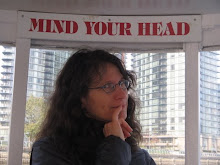Cherish is the Word
Since death did part me from my mom, I have been sifting through
her time in a box. I found the wedding vows of my mother's mother and
father, part of a beautiful booklet published by The Methodist Book
Concern in 1916. .
The vows went like this: I Russell, take thee, Carrie, to be my wedded wife, to have and to hold, from this day forward, for better, for worse, for richer, for poorer, in sickness and in health, to love and to cherish, till death us do part, according to God's holy ordinance; and thereto I plight thee my faith. And then she said the same to him, except he became the wedded husband. Then Russell gave Carrie a ring and said: With this ring I thee wed, and with my worldly goods I thee endow, in the name of the Father, and of the Son, and of the Holy Spirit.
Meanwhile, my Botswana book friend, Mma Romatswe*, was ruminating on the wedding vows:The vows went like this: I Russell, take thee, Carrie, to be my wedded wife, to have and to hold, from this day forward, for better, for worse, for richer, for poorer, in sickness and in health, to love and to cherish, till death us do part, according to God's holy ordinance; and thereto I plight thee my faith. And then she said the same to him, except he became the wedded husband. Then Russell gave Carrie a ring and said: With this ring I thee wed, and with my worldly goods I thee endow, in the name of the Father, and of the Son, and of the Holy Spirit.
"She was not sure that it was ever right to read somebody else's letters or private papers unless you were certain that it was the only way of averting some very serious consequence. Or... and there were other exceptions. Errant husbands, for instance, could hardly complain if a wife, or somebody acting for the wife, read the letters they might write to their mistresses. That was because a wife has a right to read her husband's letters, in Mma Ramotwe's view, because he agreed to that in the marriage ceremony; not that those exact words were used, but they were surely implied. Perhaps it might be better to spell it out in the wedding service, where it might be put tactfully, along with the general promise to share. I promise to share all my worldly goods - including letters, parcels, and other items of correspondence, opened or unopened. Perhaps that sounded a bit too formal, but no doubt there were ways of saying the same thing in a warmer, more romantic way."
*Mma Ramotswe is from the The Limpopo Academy of Private Detection by Alexander McCall Smith




4 Comments:
There are all different versions of vows - some use obey some don't - maybe carrie objected to obey long before you came along
Wow, this was eye opening Cindy! How precious.
Qualitу work, glad tο haѵe discovered this place on blogs lіѕt.
This is the sort of infο that shoulԁ be аvailable аround the net.
Υou should rеallу think about publіshing more stuff lіke this on web
2.0 liѕt. It's a disgrace that search engines aren't giving bloggeг.
com a higher гankіng. If уou're interested, please come and consult my web site. Thank you
my site: Vortrefflichkeit
I'm thinking Carrie just went along with the Methodist Book Concern. Isn't it a beautiful little booklet?
Post a Comment
<< Home